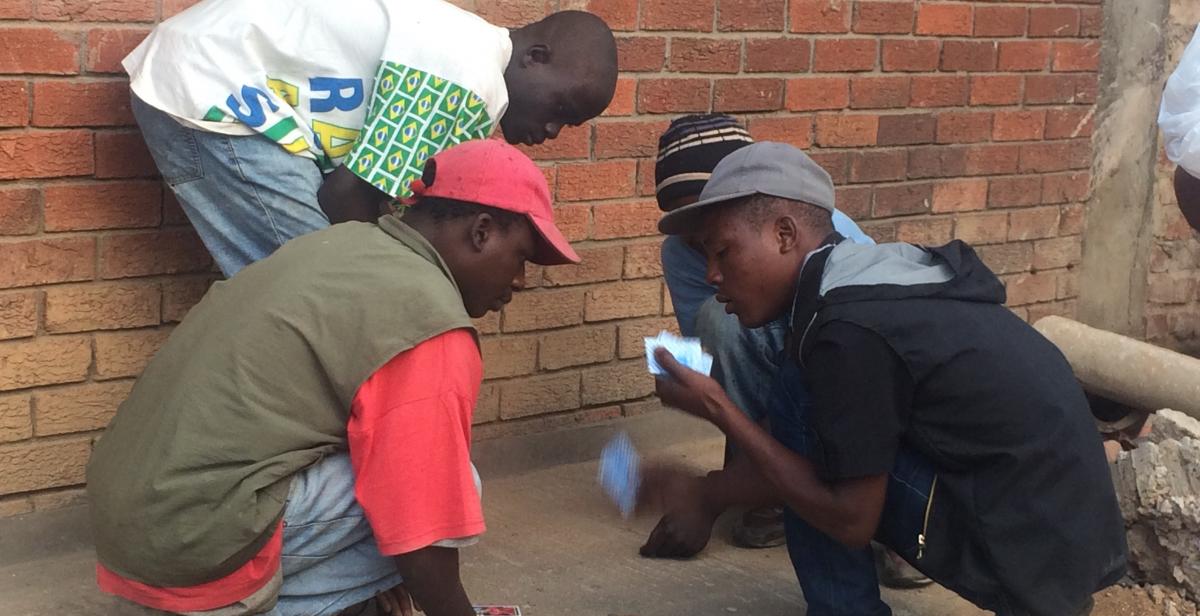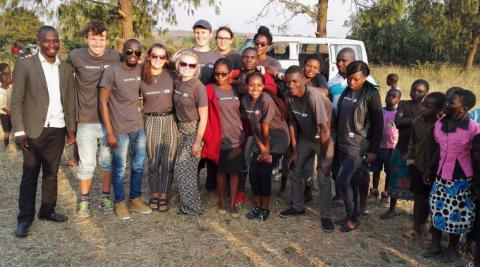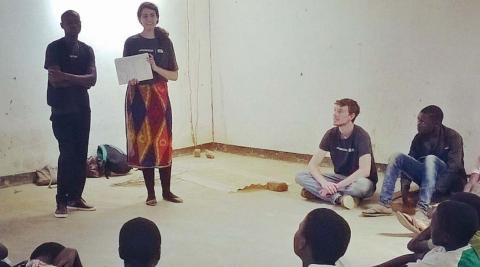“Street child” has commonly been referred to as young person working and living on the street in urban centres. Street children are widespread in underdeveloped and developing countries and Zimbabwe has experienced a rise in children living on the streets. Several reasons such as poverty, low household income, violation of child rights, sexual exploitation, HIV and AIDS, neglect and rebellion against guardians and parents have been a contributing factor. The term “street child” is one that is commonly used by the public, civil society organizations and non-governmental organisations to advocate for their rights.
Society stigmatises street children, assuming that they are all the same and classify them in the same category, yet upon closer analysis; one can conclude that they are not the same. They all have different behaviours, attitudes and personalities based on their different backgrounds and the pull factors to the streets.
Due to gross pull factors to the streets such as abject poverty, HIV and AIDS, sexual exploitation, low household income and child rights violation, the street child has been exposed to substance abuse mainly because he/she wants to overcome harsh feelings evoked and experienced on the street such as starvation, climate conditions and loneliness.
I am of the opinion that most street children choose the streets as a much better option to stay than being at home. This is mainly because children may be victims of physical, emotional and sexual abuse in many instances hence street life becomes a reasonable option where they are not exposed to the perpetrators of abuse back home.
If the choice of leaving home for the streets is based on poverty, street children are involved in begging, provide manual labour such as car washing and carrying heavy luggage for people on bus terminus and selling drugs such as marijuana as a survival strategy and source of income.
This does not mean life on the street is rosy because of the financial independence they gain after leaving home but street children are also exposed to harsh living conditions such as exposure to communicable diseases and prone to poor health, violence, sexual exploitation and drug abuse. Resort to risk behaviours such as prostitution and theft is common amongst street children and this has led to a rise in unwanted pregnancies amongst teenage street girls, increase in child mortality and abortions and rise in sexual transmitted infections including HIV and AIDS amongst street children.
I believe every individual should be guided by rules and should have their own set , but this is another untold story to children living on the streets. Street have few rules and regulations to adhere to and follow as compared to a normal home set up, where one has to follow set rules. These children may end up adopting wild behaviours and attitudes, hence the overall judgement of being referred to as criminals.
They can easily become agitated if they don’t get what they want and become violent hence scare many people away and possibly those who wish to assist. I guess it's true what they say that "a hungry man is an angry man" because these children will go astray to get what they want; and what they want is mainly food, because poverty is usually the driving factor to children moving to the streets especially in Zimbabwe.
Street children are not only exposed to poor living conditions, by sleeping on street pavements, abandoned buildings, market places and under bridges but also poor food, harsh climatic conditions and are sometimes abused by people coming from normal homes who should be protecting them. These children often built relationships amongst themselves and create a family-like setup amongst themselves as a security measure so they can protect each other from perpetrators of abuse on the street.
Normally people would view street children as "victims" or "criminals" because of their way of life but the thinking should be examined closely because I see hope, so much light at the end of the tunnel in most of them. They are "survivors", not "criminals" nor "victims"; because they show so much resilience and unexplainable coping mechanisms in the midst of harsh life conditions therefore there is to advocate and promote their rights.
Without access to business training, life skills training, education, health care, food and legal aid street children will remain marginalised therefore there should be platforms set in place to provide counselling services and knowledge systems and a vibrant supporting community to assist these children to take control of their lives once again. There is no need to doubt the possibility that these children can own their lives again, it will happen, if the community says yes and is sensitive to the needs of these children and work together with them to make a positive change.
Written by ICS volunteers Felicity Yeukai, Chris and Tanya






